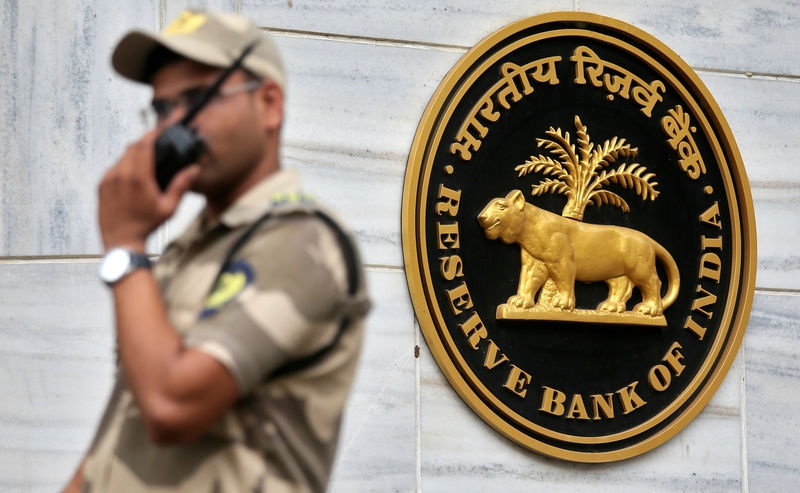By Manoj Kumar
NEW DELHI (Reuters) - An Indian parliamentary panel on Thursday asked the central bank to ease its rules on capital requirements for banks so that they can increase lending.
"Such stringent norms stipulated by the RBI (Reserve Bank of India) for our banks ... is unrealistic and unwarranted," said a report tabled in parliament by the Parliamentary Committee on Finance.
The report comes after the government and some of the board members of the RBI have put pressure on the central bank to relax capital requirements for banks as they seek to boost credit and economic growth.
Former RBI governor Urjit Patel, who quit last month, opposed the government's demand for lowering capital requirements and warned about the need for a cushion to offset unexpected risks.
Indian banks are required to maintain a minimum capital to risk weighted asset ratio (CRAR) at 9 percent, against the global Basel-III requirement of 8 percent. On top of that, they have to keep a capital conservation buffer that is supposed to climb to 2.5 percent by March 2019.
The rollback of additional capital requirements could release about 5.34 trillion rupees (£60.5 billion) into the economy by releasing capital for lending.
On Friday, the RBI in a report opposed the call to relax current risk weighting rules which are used to calculate capital requirements, saying they fortified banks against the risk of failure. However, it did announce its intention to review capital regulations.
The rating agencies have warned against dilution of capital norms for banks.
Saswata Guha, country director, financial institutions, at Fitch Ratings, said capital ratios for many banks were well below global standards and any relaxation could prove detrimental to banks and their ability to absorb unexpected losses.
In India, the recovery on loans that go into default was historically only about a quarter of the outstanding loan amount, he said.
"Given such low recovery ratio, any kind of dilution of capital norms will be credit negative for Indian banks,” Guha said.
According to Fitch's previous estimates, Indian banks need nearly $65 billion (£51.7 billion) in new bank capital by March 2019 to meet current regulatory requirements.
In 2017, the government announced a plan for an infusion of 2.11 trillion rupees into 20 state banks by March 2019 to meet Basel-III global demands.
But last month it increased its capital infusion into some state-run banks to 1.06 trillion rupees in the current fiscal year ending in March. That is because many banks have fallen well short of a target to raise about 580 billion rupees themselves.
